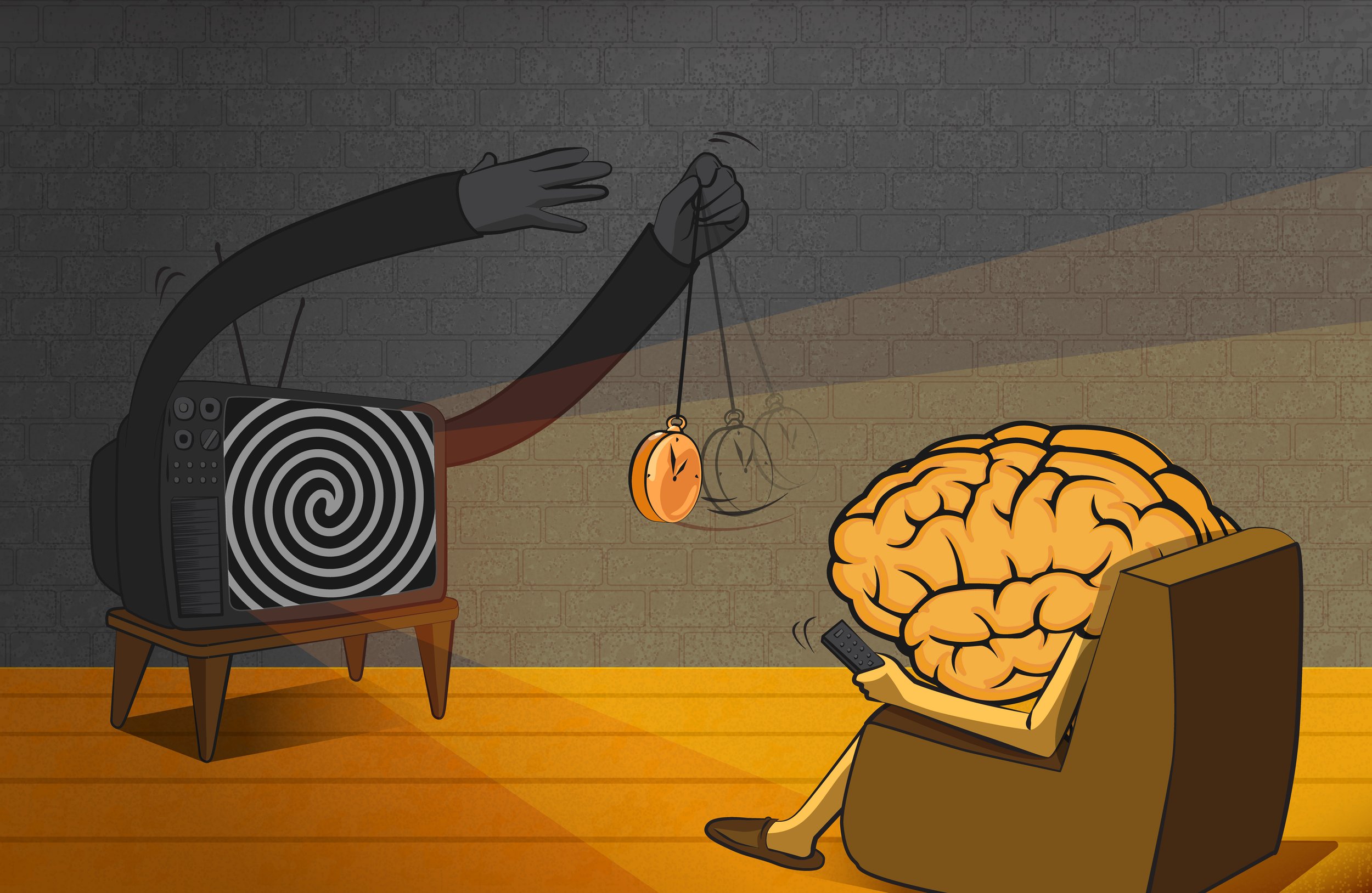Is "Hypnosis" For Real? YES.
Allow Me To Introduce You To A Few Other Hypnotists You Already Know
The Hypnotic Pull of Everyday Influences
You might think hypnosis is something reserved for magicians or therapists. But what if I told you that you're being hypnotized every single day? Your parents, friends, advertisers, salespeople, and social media platforms subtly influence your thoughts, emotions, and decisions. The scariest part? It's working better than you realize.
From the ads you scroll past on Instagram to your friends' advice, these forces tap into psychological principles that manipulate your subconscious. Here's how they do it — and how you can start breaking free.
Advertisers: Playing With Your Desires
Advertisers are masters of psychological manipulation. They're not just selling products but also dreams, identities, and emotions. They exploit your deepest desires and fears through a blend of vivid imagery, catchy slogans, and emotional appeals.
Scarcity and Urgency: Ever felt panicked by a "LIMITED TIME OFFER"? That's the scarcity principle in action. Advertisers make you feel like you'll miss out unless you act now by creating a sense of urgency.
Social Proof: Why do commercials feature people like you using their product? Because if others are doing it, it must be good. This taps into our innate need to belong.
Emotional Hooks: Many ads bypass your logical brain altogether. Instead, they focus on triggering emotions — nostalgia, happiness, or even guilt. Think of that heartwarming holiday commercial or the sad animal shelter PSA.
How to Resist: When faced with ads, pause and ask: Do I need this? Or Am I being emotionally manipulated? Building awareness is your first line of defense.
Salespeople: Masters of Persuasion
Salespeople have one job: to make you say "yes." And they're trained to do so using powerful psychological techniques:
Reciprocity: When a salesperson offers you something for free (like a sample or consultation), you feel obligated to reciprocate by buying something.
Anchoring: They'll show you the most expensive option first, making everything else seem like a bargain by comparison.
Mirroring and Rapport: Good salespeople subtly mirror your body language and speech patterns to build trust and make you feel understood.
How to Resist: Take your time. Don't make decisions on the spot. Walk away, think it over, and return if it's worth it.
Social Media: The Ultimate Hypnotist
Social media platforms are engineered to keep you scrolling. They use algorithms designed to feed you content that triggers dopamine releases in your brain, keeping you addicted.
Infinite Scrolling: There's no end to the feed, so you're stuck in a loop of endless consumption.
Personalized Content: The algorithm knows what you like and serves you more of it, reinforcing your existing beliefs and keeping you engaged.
Fear of Missing Out (FOMO): Seeing curated highlights of other people's lives makes you feel like you're falling behind, prompting you to engage more.
How to Resist: Set limits. Use apps that track your screen time or block social media during certain hours. Remember, you should control the app — not the other way around.
Your Friends: Peer Pressure in Disguise
Friends significantly influence your decisions, often without you realizing it. Peer pressure isn't always overt; it can be subtle and insidious.
Conformity: You're more likely to agree with a group decision, even if you're unsure, just to fit in.
Shared Habits: If your friends have certain spending habits, lifestyle choices, or beliefs, you might unconsciously adopt them to maintain harmony.
Social Validation: Friends provide approval and validation, which can make you crave their acceptance and alter your behavior to get it.
How to Resist: Surround yourself with people who encourage your individuality and critical thinking. Practice saying "no" when something doesn't align with your values.
Your Parents: The First Hypnotists in Your Life
Your parents shaped your worldview before you even had the ability to question it. Through repetition and reinforcement, they ingrained beliefs and behaviors that still influence you today.
Repetition: Phrases like "Money doesn't grow on trees" or "You need to go to college to succeed" may have been repeated so often that they became your default mindset.
Emotional Conditioning: Rewards and punishments teach you what's "acceptable" or "wrong," shaping your emotional responses to various situations.
Modeling Behavior: You likely adopted many of your parents' habits and attitudes, whether you realize it or not.
How to Resist: Reflect on your core beliefs and ask yourself: Are these really mine? Challenge the assumptions you've held since childhood and redefine your own values.
Breaking Free: The Power of Awareness
The first step to breaking free from this daily hypnosis is awareness. Once you recognize the subtle ways these forces influence you, you can start reclaiming your autonomy.
Practice Mindfulness: Stay present and question your impulses. Are you acting out of genuine desire or external pressure?
Educate Yourself: Learn about the psychology behind advertising, persuasion, and conditioning. Knowledge is power.
Set Boundaries: Whether it's limiting screen time or saying "no" to pushy sales tactics, assert control over your environment.
Conclusion: Wake Up from the Trance
The world is full of hypnotists vying for your attention, money, time, and loyalty. From flashy ads to persuasive salespeople, addictive social media platforms, well-meaning parents, and even your closest friends, these influences shape your thoughts and behaviors more than you realize. But by becoming aware of their tactics and taking deliberate steps to resist, you can break free and live life on your own terms.
The question is: are you ready to wake up?

